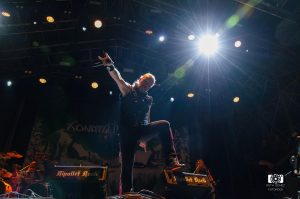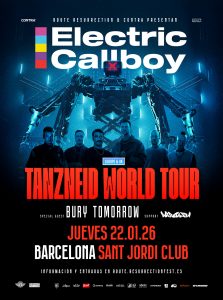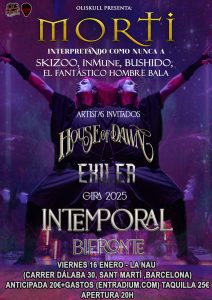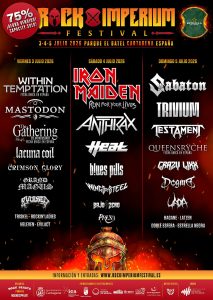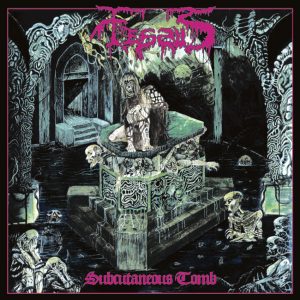RIDERS OF ROHAN: Epic Rock and Existential Angst: When Middle Earth Meets Modern Struggles
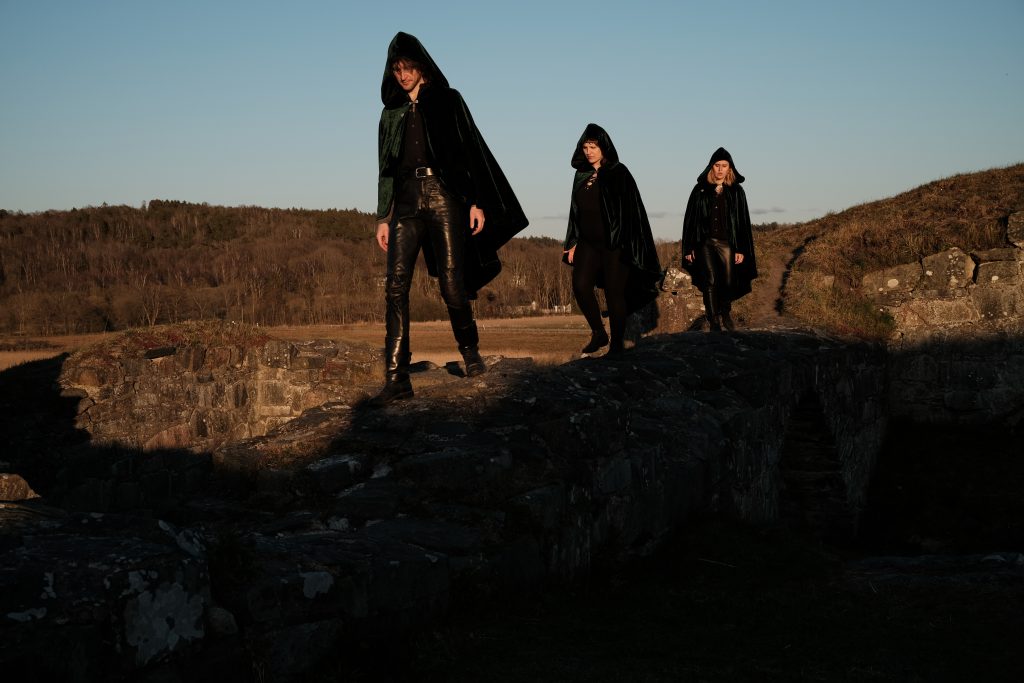
A metal band drawing inspiration from J.R.R. Tolkien is nothing new, but when Riders of Rohan take the stage, they’re not just crafting another Tolkien-inspired fantasy tale—they’re laying bare the raw human emotions that transcend Middle Earth. In this interview, the band doesn’t just sing about orcs and elves; they dissect the horrors of war, the complexities of villainy, and the fragility of memory itself. From confronting personal loss through Tolkien’s stories to using their music as a defiant stand against the rise of fascism, Riders of Rohan proves that fantasy can be a powerful tool to reflect on real-world struggles. They blend myth and personal experience, creating an unfiltered reflection on humanity, power, and the societal challenges we face today. Here’s an eye-opening dive into the world of Riders of Rohan, where epic rock meets contemporary crises, and legends reveal the truths about us all.
– Hi, first off thanks for answering to our questions. How’s everything doing in the lair of Riders of Rohan?
Busy with work and family, but all in all well!
– Your latest release, With Hope or Without…, continues the exploration of themes such as love, longing, and personal journeys in Middle Earth. What motivated you to delve deeper into these narratives, and how do they resonate with your own experiences as musicians?
Tolkien created such a vast world with so many different characters and themes, so we’ll probably be able to do a thousand more songs inspired by his many writings. But we also like to explore what is NOT in the writing, the things that are left to our imagination. For instance, “To Name a Successor”, which deals with the interpersonal drama between the Ringwraiths, was written after a conversation we had about the other Nazgûls’ feelings towards the Witch-king of Angmar. Why was he singled out and favored by Sauron? They are all of them kings, aren’t they?
– The lyrics touch on complex emotions and characters from Tolkien’s world, such as the Ranger yearning for lost love and King Théoden confronting grief. How do these themes reflect contemporary struggles, and what do you hope listeners take away in terms of emotional connection?
As with all art, be it literature or music, you can always interpret it as you like. We tend to connect it to our own emotions and struggles. The feeling of hopelessness in times of war for instance is very much alive today (with the ongoing genocide in Palestine and Sudan to name a few), and Tolkien’s description of Theoden’s despair is very on point. It’s all very human themes, that a lot of people can relate to.
– You describe your music as adventurerock, blending old-school rock with various influences. How do these diverse styles contribute to the storytelling in your music? Are there specific genres or artists that inspire you while crafting these narratives or that you think work especially well for this kind of storytelling?
We are inspired by all kinds of music and genres, but ever since the days of Robert Johnson, rock’n’roll has been the greatest vessel for epic storytelling. For the EP we were very much inspired by the music of Neil Young and Thin Lizzy among others.
– In your songwriting, you intertwine myth and personal experience. How do you balance drawing inspiration from established lore while making it relatable to modern audiences? Is there a narrative device or technique you favor in your storytelling?
Old J.R.R. himself intertwined myth and personal experience in his work, and we’re just continuing on that path. Not always deliberately, but it’s probably a very human thing to unconsciously relate fiction to your own experiences.
– The character of Sauron is portrayed with more depth, facing “serious daddy issues.” How important is it for you to humanize traditionally villainous characters, and what message do you think that sends about understanding conflict in our own lives?
First rule of conflict resolution is to hear each other out, to understand the different narratives and understanding where they come from. Many who have been labeled as villains in their own time have turned out to be “the good guys,” and vice versa, and people are more complex than just good or bad. Even though Sauron is a Maia, and not a human person, who are we to say that his vision is not better than that of the Elves, i.e., the ruling class of Middle Earth?
– Gothenburg’s industrial landscape and often harsh weather conditions can create a unique atmosphere for creativity. How do these elements influence your music and lyrical themes? Do you find that the environment shapes the stories you want to tell?
To live in Gothenburg sometimes feels like an endless journey through Middle Earth accompanied by fierce winds and everlasting rain. There is not much left to do than to write epic rock songs together.
– Your previous work has hinted at themes of community and solidarity. How do you see your music fostering a sense of togetherness among listeners, especially in times of division? Do you believe music has the power to unite people with different perspectives?
Yes, hopefully it has. For us, solidarity and community is something that marks everything we do, so it’s inevitable that our music should reflect that as well. We do believe that music has the power to unite people, and with the growing wave of fascism and warmongering, it’s more important now than ever.
– As a band that draws from rich literary sources, how do you feel literature can complement music in terms of social commentary? Are there particular authors or works that inspire you to push beyond traditional musical boundaries?
*Yeah sure, a lot of them, but in order to keep our collective ADHD in check, we confine ourselves to the works of good ole’ J.R.R. 🙂 *
– With lyrics that evoke both nostalgia and a longing for connection, how do you approach the theme of memory in your music? Do you think there’s a universal experience that listeners can connect with when reflecting on their own memories through your songs?
As mentioned before, Tolkien wrote from a personal perspective but without relating it to himself specifically, and we try to do the same. Something that speaks to the collective human experiences.
– The track “Giving Up the West” raises profound questions about existence and the afterlife. How do you approach themes of mortality in your music, and what do you hope to convey about the human experience through these explorations?
Y.O.L.O. No, but seriously; as strict atheists, we are pretty sure that we’re all going to be worm food when we die, so all we have to decide is what to do with the time that is given us. So do SOMETHING!
– As you continue to evolve with your sound, what message or feeling do you hope listeners carry with them after experiencing With Hope or Without…? How do you envision the impact of your music extending beyond the listening experience?
The previous release was very on the nose with the themes from the books, but we delved deeper into the untold stories with this release, the stories beyond what we read in the books. Even though Tolkien is a master of detailed descriptions, there is a lot missing in terms of the inner life of the characters, so we wanted to share our interpretations of them with our listeners, and also encourage them to think outside the books as well.
– That’s all from our side. Thanks again for answering to these questions. If you’d like to add some final words; it’s your turn.
No Gods, No Masters. And FREE PALESTINE!


